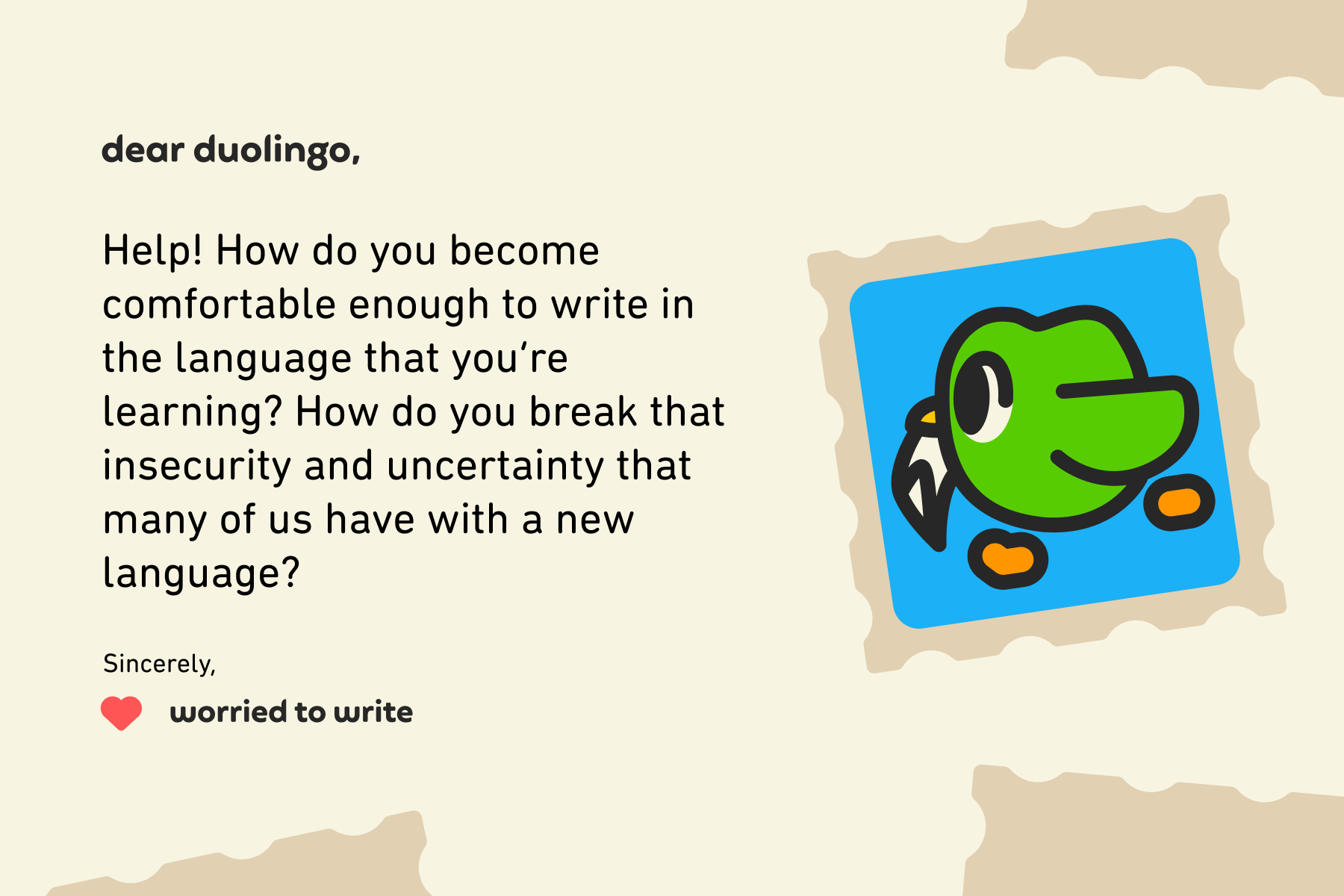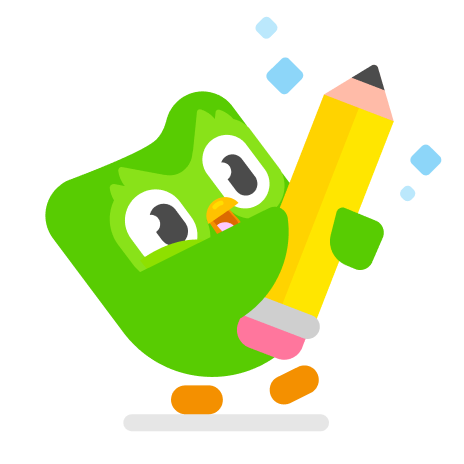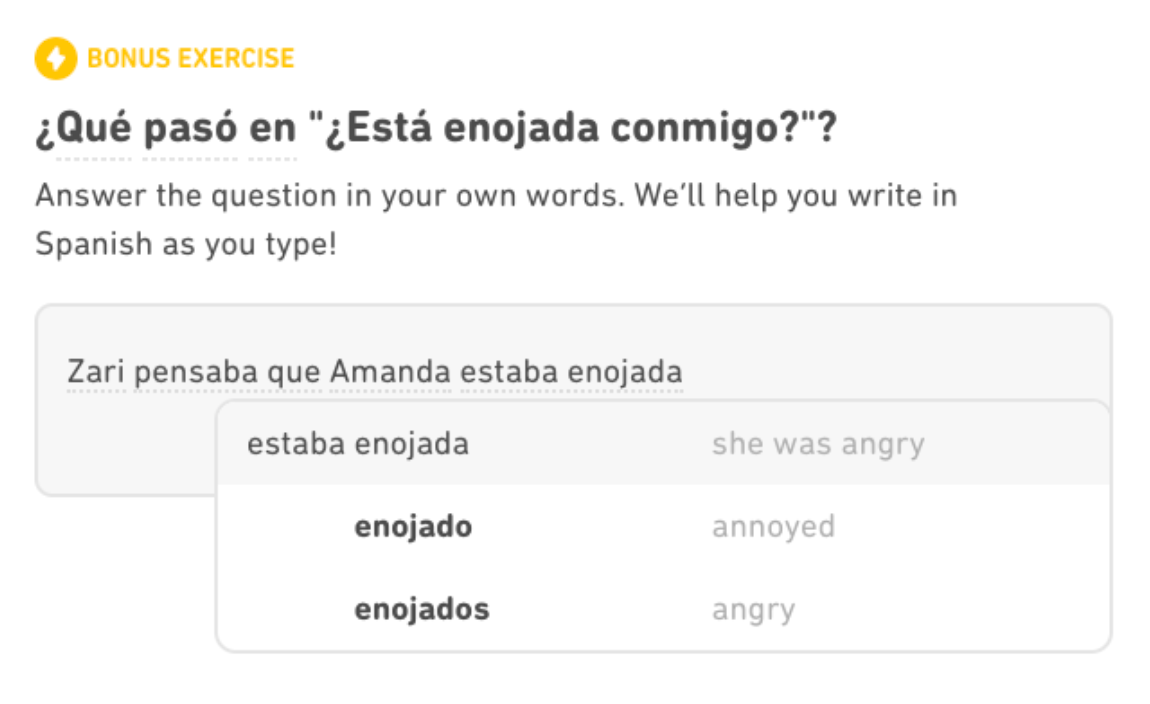Welcome to another week of Dear Duolingo, an advice column just for language learners. Catch up on past installments here.
Hello, learners! I’m Nora Gordon, filling in for Dr. Cindy Blanco this week, and I’m so excited to share some learning advice with you. But first, a little bit about me! I’m a Curriculum Designer here at Duolingo. I work on our courses teaching English to speakers of Spanish and Portuguese, and I also work with Duolingo for Schools, our tool for teachers. I’m a former language teacher myself (I’ve taught both Spanish and English) and I love supporting both teachers and learners!
Now, onto this week’s topic:

Thanks for your question, Worried to Write! (But first of all: don’t be worried!)
You don’t have to be a budding novelist to want to improve your writing skills in the language you’re studying. Writing is a huge part of how we communicate in everyday life, from sending a text message to a friend, to emailing a coworker, to posting an update on social media. But writing in a new language can be intimidating! Lucky for you, I have a few practical tips up my sleeve that will help you feel more confident while writing in the language you’re learning and improve your overall writing skills.
Use what you know
Maybe you’ve experienced that familiar moment when you put pen to paper and realize the word that you need is just… not coming to mind. Here’s a tip: If you don’t know how to say something, try phrasing it a different way. Instead of “overjoyed,” just be “very happy.” Instead of “fascinating,” try “interesting.” You will likely not be able to express yourself with the exact precision or eloquence that you would in your first language, and that’s OK! You can probably still find a way to get your message across. What’s the core of what you want to communicate? Focus on that.
If you’re just starting out with writing in your new language, this may also mean starting with very short and simple sentences. Eventually, you’ll be able to build up to making your writing more nuanced and complex!
Finally, if you happen to be learning a language with similarities to your own, take advantage of those! For example, if you’re an English speaker learning Spanish, you can use your knowledge of English vocabulary to make guesses about Spanish. Once you know that Spanish conversación means “conversation” and that condición means “condition,” you may be able to guess that the word for “exception” is excepción! (Though beware of pesky false cognates!)

Don’t be afraid to ask for help
Sometimes you just get stuck and need a little assistance! There’s absolutely nothing wrong with looking up a word or phrase when you need to. One of the great things about communicating through writing is that you usually have more time to organize your thoughts, do some light editing of your message, consult with an expert (like a friend or relative who speaks the language you’re learning), or use online translators and dictionaries if you need to!
No need to be perfect
It can sometimes feel like, because you’re putting your message down in writing, it has to be perfect. But small mistakes with spelling, grammar, accent marks, and punctuation seldom make your writing hard to understand. You can still get your message across and communicate what you need to. Of course, you should consider your audience: are you writing a quick message to a friend on WhatsApp? Type away and don’t worry about mistakes! Are you writing an email to a colleague? Re-read your message and edit it for clarity and formality. Publishing an article for an online magazine in your new language? First of all, good for you! In this case, you’ll probably want to write several drafts and incorporate feedback from multiple people on your writing before publication. Just like in your first language, writing in your new language will take lots of forms and have different styles and levels of formality, depending on your audience and purpose for writing.
Read a lot!
One great way to improve your writing skills is actually through lots and lots of reading. While reading, you’re exposed to vocabulary, grammar structures, and other writing conventions that you’ll eventually be able to use in your own work. Duolingo Stories are a fun and easy way to practice reading in your new language! A great strategy to get started in writing in your new language is to model your writing on the things you read. French and Spanish learners can practice this strategy after reading a Duolingo Story through a new feature on Duolingo’s site! At the end of a story worth at least 28 XP, you’ll see the option to earn bonus XP by completing a writing exercise: you’ll summarize parts of the story in your own words. Don’t worry, we’ll give you hints to help you get started! While writing, don’t hesitate to scroll back through the story to remind yourself of the vocabulary that you might need. You’ll also have an opportunity to incorporate feedback to make your response sound more natural!

Don’t fear writer’s block
Hope that helps! And remember: expressing yourself through writing in your new language can (and should!) be rewarding and fun! But you don’t have to be an advanced learner to get started. Even beginners can start writing in the language they’re learning. Be creative, write in the medium that’s most comfortable to you, and don’t be afraid to put pen to paper (or fingers to keypad) and get writing!
We’ll be back in two weeks with the next installment of Dear Duolingo, where we’ll be answering more questions about language learning! You can submit your questions via email to dearduolingo@duolingo.com or by tagging us on social media with #DearDuolingo.
